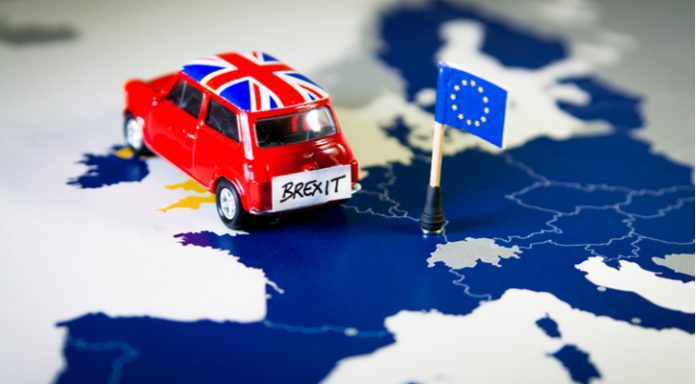The pound continued to grind lower versus the euro on Tuesday, extending losses from the previous session. The pound euro exchange rate dropped to a low of €1.1376, its lowest level in 5 sessions.
| What do these figures mean? |
|---|
| When measuring the value of a pair of currencies, one set equals 1 unit and the other shows the current equivalent. As the market moves, the amount will vary from minute to minute. For example, it could be written: 1 GBP = 1.13990 EUR Here, £1 is equivalent to approximately €1.14. This specifically measures the pound’s worth against the euro. If the euro amount increases in this pairing, it’s positive for the pound. Or, if you were looking at it the other way around: 1 EUR = 0.87271 GBP In this example, €1 is equivalent to approximately £0.87. This measures the euro’s worth versus the British pound. If the sterling number gets larger, it’s good news for the euro. |
Brexit concerns have weighed on sentiment for the pound over the past few sessions and will do so again today as the “meaningful vote” amendment in the Brexit Bill is passed back once again to the House of Commons. As the Bill to and fros between the House of Lords and the House of Commons, it has become glaring obvious that UK Prime Minister is struggling to make any headway with anything Brexit related.
The government refuses to given MP’s in Parliament a meaningful vote on what should happen next in the case that there is no Brexit deal. The House of Lords and some rebels in the Conservatives strongly oppose to this, threatening to slow the movement of the Brexit Bill right down and paint Theresa May in a weak light.
Reports from the EU Summit concluding that there has been no meaningful progress on the Irish border situation, in addition to headlines that the EU have told the UK to step up the preparation for a no deal Brexit have increased fears of a hard Brexit sending the pound lower.
| Why is a “soft” Brexit better for sterling than a “hard” Brexit? |
|---|
| A soft Brexit implies anything less than UK’s complete withdrawal from the EU. For example, it could mean the UK retains some form of membership to the European Union single market in exchange for some free movement of people, i.e. immigration. This is considered more positive than a “hard” Brexit, which is a full severance from the EU. The reason “soft” is considered more pound-friendly is because the economic impact would be lower. If there is less negative impact on the economy, foreign investors will continue to invest in the UK. As investment requires local currency, this increased demand for the pound then boosts its value. |
Attention will remain on Brexit as the Brexit Bill returns to the House of Commons for another round of voting. Further signs of weakness from Theresa May could send the pound lower.
Dovish Draghi Sends Euro Lower
The euro was broadly out of favour on Tuesday as investors responded with alarm to the escalating trade war between the US and China. As a result, investors looked towards safe haven currencies such as the US dollar to shelter their investments. Given that the euro trades inversely to the dollar, as the dollar has shot higher, the euro has declined.
European Central Bank President Mario Draghi also did little to lift the euro when he gave a speech in Sintra. Draghi continued with the same cautious tone on the ending of the current bond buying programme saying interest rates would only rise as from September last year. This pushed back investor hopes for an interest rate rise over the summer, sending the euro broadly lower.
| Why do raised interest rates boost a currency’s value? |
|---|
| Interest rates are key to understanding exchange rate movements. Those who have large sums of money to invest want the highest return on their investments. Higher interest rate environments tend to offer higher yields. So, if the interest rate or at least the interest rate expectation of a country is relatively higher compared to another, then it attracts more foreign capital investment. Large corporations and investors need local currency to invest. More local currency used then boosts the demand of that currency, pushing the value higher. |
| —– |
|
This publication is provided for general information purposes only and is not intended to cover every aspect of the topics with which it deals. It is not intended to amount to advice on which you should rely. You must obtain professional or specialist advice before taking, or refraining from, any action on the basis of the content in this publication. The information in this publication does not constitute legal, tax or other professional advice from TransferWise Inc., Currency Live or its affiliates. Prior results do not guarantee a similar outcome. We make no representations, warranties or guarantees, whether express or implied, that the content in the publication is accurate, complete or up to date. Consult our risk warning page for more details.
This article was initially published on TransferWise.com from the same author. The content at Currency Live is the sole opinion of the authors and in no way reflects the views of TransferWise Inc.





